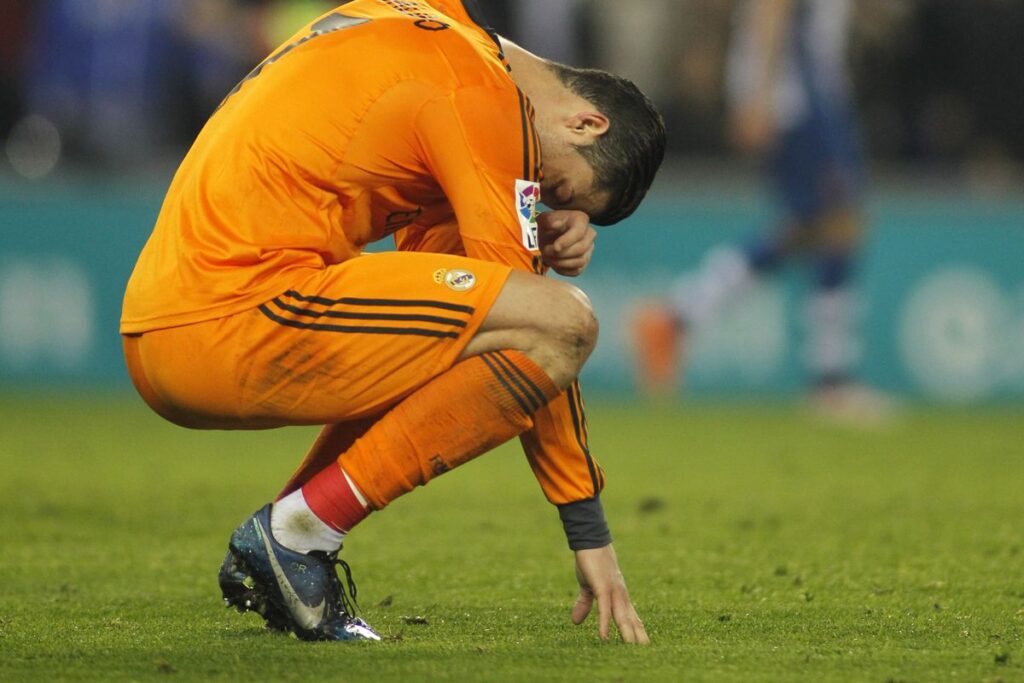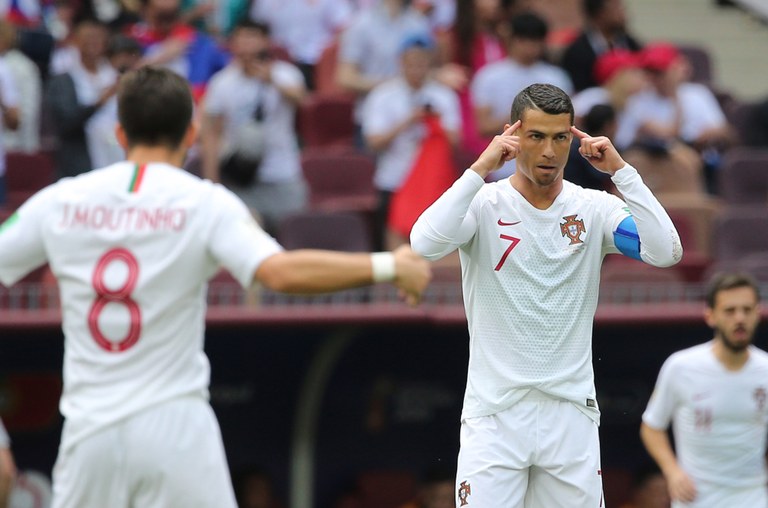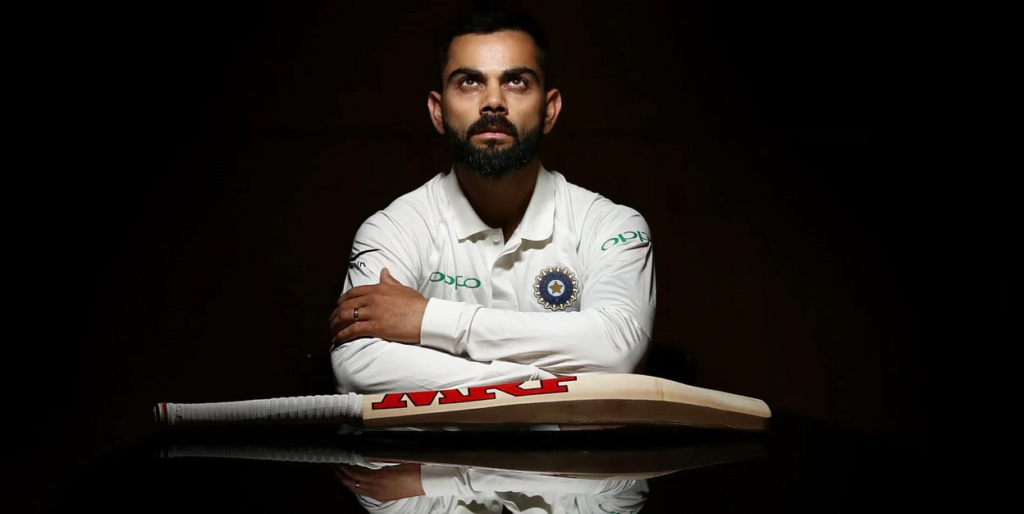The recently concluded FIFA WORLD CUP 2022 is going to go down in history as a “groundbreaking world cup with a fairytale ending” as FIFA describes it! A wave of underdog teams, rising stars and tribute to legendary players made this world cup a story of its own. The surge of great pressure and the mental fortitude to withstand it was equally loud and apparent. To perform under pressure of the World Cup Final is not easy to handle, but Lionel Messi was one among the many to demonstrate every ounce of mental toughness needed to endure it.
The pressure that one player feels may be a challenge to another, who may embrace it. A majority of professional athletes have mastered different levels of pressure-management techniques, which explains why they can compete at such high levels.
What does Pressure in Sports means?
In sports, pressure is considered to be a psychological stressor that relates to an individual’s feelings about an anticipated competition. When a task seems almost too demanding to do, pressure is frequently interpreted as a negative emotion of worry and anxiety. Further, it depends on how an athlete perceives pressure to be, whether it works in his favor and gives him that extra motivation or works against him by affecting his performance negatively.
Pressure also has a source or origin point! Internal pressure sources include the athlete himself inducing pressure situations due to doubts, worries, self-defeating thoughts etc. External pressure sources in sports can look like media expectations, fans, management, other players, conflict with family or interpersonal issues, financial burdens etc.

Is Pressure Good or Bad?
Now comes the question: Is Pressure helpful or harmful? Well to answer this, lets understand how Pressure is a continuum as it moves between states of feeling intense pressure to moderate or low pressure, thriving in pressure and succumbing to pressure or overcoming it. The continuum is a product of the diverse experiences and different circumstances in which we feel pressured.
Thus, any athlete either perceives pressure as negative or positive. You will link pressure with negative mental states like self-doubt if you view pressure negatively. Additionally, you might feel the need to do more cognitive adjustment to perform better like refocus, control your emotions, cope with the pressure etc. and it might not always work in your favor.
Conversely, if you interpret pressure positively, then experiencing its symptoms could actually boost your performance. Reframing your response to nervousness and pressure includes recognizing that they can encourage effective performance. Physiologically our body can respond positively to pressure because of its adaptive nature to stress. The release of adrenaline, which raises heart rate and breathing rate, is one example of how nerves and pressure are conducive.

Unable to perform under Pressure?
Choking
While being under pressure or experiencing a lack of oxygen, the feeling of being unable to breathe or being suffocated is known as “choking.” They proposed that when an athlete is choking, they can rationally choose the best course of action under stress, but they are unable to carry it out due to psychological constraints. It is linked to high pressure situations and high expectations/demands.
Poor Decision Making
When under pressure, an athlete’s ability to think clearly and make suitable decisions is hampered. They find themselves hassled with unclear and complicated thoughts that result in poor decision making.
Physical manifestations of pressure
These include physiological changes like increased sweating. Boosted adrenaline, rapid breathing, heart rate, etc.
Mental and emotional manifestation
Negative thoughts about the event, inability to concentrate, low self-confidence, feelings of anticipation, negative feelings of fear, anxiety.

How can athletes deal to perform under pressure?
Sports Psychologist’s role in supporting the mental well-being of sports players is not just limited to the gaming season when they are most active but also extends to other times like pre competition, post competition and for addressing any other psychological concerns and specially build resilience and mental toughness to perform under pressure.
Identification and acceptance
Practicing body scanning and recognizing patterns of how your body reacts to pressure during practice and competition is the first step towards self-awareness of one’s responsible behavior. See how your body reacts to the signs and symptoms of pressure situations and how that affects your performance.
Control the controllables
Focusing on what you can control is one of the best strategies to deal with a stressful scenario. Athletes frequently concentrate on the factors outside of their control, which results in a great deal of dissatisfaction and anxiety. What you decide to concentrate on, technical ability, attitude, reactions, and amount of mental toughness are important controllables.
Reframe your Self Talk
Engage in an internal dialogue with yourself, reinforcing the positives to perform under pressure with specific phrases. You could say, “I’m nervous right now, but I have practiced enough to perform well”. The possibility of improved performance is raised when one can link a physiological symptom (nerves) with a favorable result (playing well while nervous).
Managing expectations
Your expectations of how you should perform under pressure throughout a game determine the pressure you feel. It’s challenging to meet expectations when placed at an unreasonably high level. You are more pressured when your performance falls short of your goals. For instance, In the cases of Simone Biles and Mikaela Shiffrin, in addition to the strain brought on by the Olympic Games, there was another aspect that could have increased pressure: the degree of expectations.
Exposure to high pressures in a controlled setting
Under a sports psychologist, you can train to get rid of self-doubt and increase one’s self-confidence. It can be incredibly beneficial to proactively place yourself in different conditions to acquire experience. If you are prepared to reflect on and gain knowledge from the experience, regardless of the outcome, you should emerge as a stronger player to perform under pressure.
Mental strength training
Working on mental skill training under a trained professional like a mental coach or sports psychologist can help develop adaptive skills and resources to cope with pressure situations.

Expect pressure and welcome it or expect pressure and overcome it!
This makes pressure an essential component of competitive sports and something that every athlete faces. FIFA world cup 2022 has served as a befitting example of how pressure presents itself as a continuous spectrum and manifests differently for different athletes.
For instance, besides the players, the goalkeepers are constantly thriving under high pressure which particularly heightens in 1-1 penalty shoot offs as seen in World Cup Finals. Hugo Lloris, the French goalkeeper and captain who is nothing less than the team’s lifeline tried to be an unstoppable force until the heart of Argentina, Lionel Messi got the lead with the opening score in the 23rd minute by scoring a penalty.
Angel Di Maria who netted the second goal was seen teary eyed and his teammates compassionately shared this emotional moment with him on field. Amidst to perform under pressure of opening the score surmounting Frenchmen, the French forward Kylian Mbappe saved his team’s bacon by converting a penalty with nine minutes remaining. Further, the match entered extra time after he responded with a superb strike that evened the score.
After the emotional victory, where one end Mbappe was seen heartbroken, the Argentinians burst out into tears of joy and a never-ending celebration. The finals have thus painted a complete picture of dealing with extreme pressure, resiliency to get through it, emotions, and victory!








Well done. Nice message for players who lost the match under pressure.
Very well written. The “choking” situation mentioned is very apt.
Very informative and well written. Everything is compiled beautifully.
Absolutely true.Both are great players Messi and Mbappe.Welldone Nimisha Shah